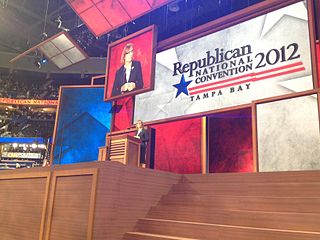A Quote by P. J. O'Rourke
Political systems must love poverty-they produce so much of it. Poor people make easier targets for a demagogue. No Mao or even Jiang Zemin is likely to arise on the New York Stock Exchange floor. And politicians in democracies benefit from destitution, too. The US has had a broad range of poverty programs for 30 years. Those programs have failed. Millions of people are still poor. And those people vote for politicians who favor keeping the poverty programs in place. There's a conspiracy theory in there somewhere.
Quote Topics
Arise
Benefit
Broad
Conspiracy
Conspiracy Theory
Easier
Even
Exchange
Failed
Favor
Floor
Had
Keeping
Likely
Love
Make
Mao
Millions
Millions Of People
Much
Must
New
New York
New York Stock
New York Stock Exchange
People
Place
Political
Political System
Political Systems
Politicians
Poor
Poor People
Poverty
Produce
Programs
Range
Somewhere
Still
Stock
Stock Exchange
Systems
Targets
Theory
Those
Too
Us
Vote
Years
York
Related Quotes
Once the premise is accepted that poverty is never the fault of the poor but the fault of 'society,' or of 'the capitalist system, then there is no definable limit to be set on relief, and the politicians who want to be elected or reelected will compete with each other in proposing new 'welfare' programs to fill some hitherto 'unmet need.'
Inevitably, people tell me that poor folks are lazy or unintelligent, that they are somehow deserving of their poverty. However, if you begin to look at the sociological literature on poverty, a more complex picture emerges. Poverty and unemployment are part and parcel of our economic order. Without them, capitalism would cease to function effectively, and in order to continue to function, the system itself must produce poverty and an army of underemployed or unemployed people.
Most Americans living below the official poverty line own a car or truck - and government entitlement programs seldom provide cars and trucks. Most people living below the official poverty line also have air conditioning, color television, and a microwave oven - and these too are not usually handed out by government entitlement programs.
Cell phones and other electronic devices are by no means unheard of in low-income neighborhoods, where children would supposedly go hungry if there were no school-lunch programs. In reality, low-income people are overweight more often than other Americans.
Poor people are bonsai people. There is nothing wrong in their seeds. Simply, society never gave them the base to grow on. All it needs to get the poor people out of poverty for us to create an enabling environment for them. Once the poor can unleash their energy and creativity, poverty will disappear very quickly.
What I think people should realize is that programs like Social Security, programs like Medicare, programs like the Veterans Administration, programs like your local park and your local library - those are, if you like, socialist programs; they're run by [and] for the public, not to make money. I think in many ways we should expand that concept so that the American people can enjoy the same benefits that people all over the world are currently enjoying.
We create institutions and policies on the basis of the way we make assumptions about us and others. We accept the fact that we will always have poor people around us. So we have had poor people around us. If we had believed that poverty is unacceptable to us, and that it should not belong to a civilized society, we would have created appropriate institutions and policies to create a poverty-free world.
Government programs aim at getting money for poor people. Our hope was that knowledge would in the long run be more useful, provide more money, and eventually strike at the system-causes of poverty. Government believes that poverty is just a lack of money. We felt, and continue to feel, that poverty is actually a lack of skill, and a lack of the self-esteem that comes with being able to take some part of one's life into one's own hands and work with others towards shared-call them social-goals.
There are myriad government programs out there to help small businesses. Few people use them effectively. The maze of information makes it difficult for any one person to understand it all, which often leads politicians, and citizens, too, to call for more programs. We don't need more government programs; we just need a better way to access them.
It is obviously easier, for the short run, to draw cheap labor from adjacent pools of poverty...than to find it among one's own people. And to the millions of such prospective immigrants from poverty to prosperity, there is, rightly or wrongly, no place that looks more attractive than the United States. Given its head, and subject to no restrictions, this pressure will find its termination only when the levels of overpopulation and poverty in the United States are equal to those of the countries from which these people are now so anxious to escape.
































